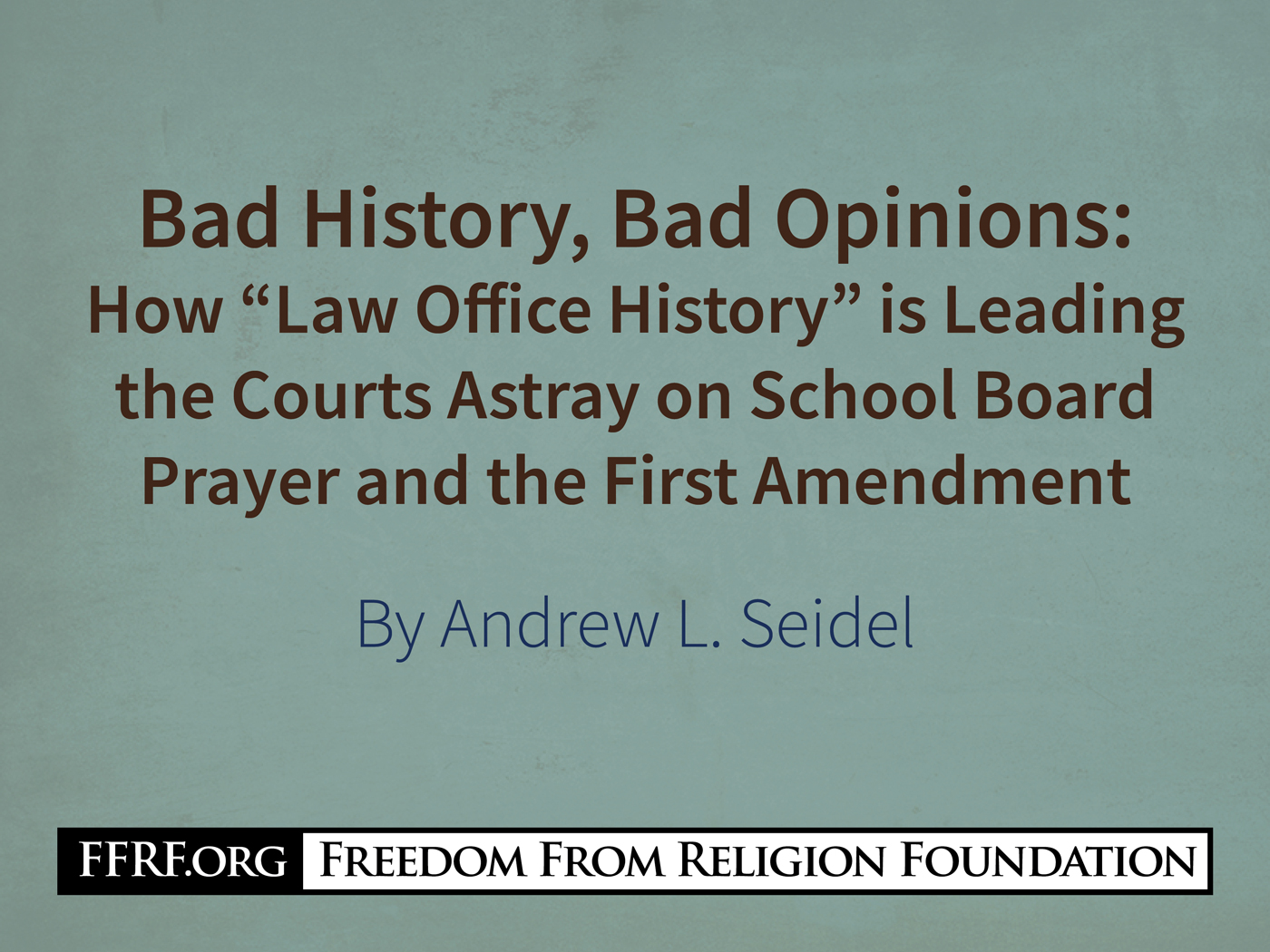
Bad history makes bad law — and when it comes to state/church separation, Christian Nationalists have flooded the courts with bad history that has led judges astray.
Freedom From Religion Foundation Director of Strategic Response Andrew L. Seidel makes this argument in a groundbreaking new article published by the Northeastern University Law Review titled: “Bad History, Bad Opinions: How ‘Law Office History’ Is Leading the Courts Astray on School Board Prayer and the First Amendment.”
Law review articles are most often written for scholars, practitioners and judges, but this article should interest anybody who cares about state/church separation. Seidel traces how at least 11 federal circuit court judges have written or joined opinions relying on fallacious history that they have repeated without question.
A central historical claim that Seidel debunks is that America has a long, unbroken history of prayer at school board meetings. Seidel traces that claim back to a single paragraph in an article written by a law student who, in turn, based the paragraph on a “friend of the court” brief written by the notoriously homophobic and Christian Nationalist Family Research Council. That brief was written by an attorney who attended all-Christian schools and had no formal training in history or historical research. The Family Research Council brief claimed that “eight states had some history of opening prayers at school board meetings.”
Seidel tracked down all of the historical sources in the brief (and many more), showing that not a single claim was supported by the historical record or evidence. “In an ultimate irony, the history in the amicus at the root of this claim actually disproves the point” the Family Research Council and these 11 judges were trying to make, Seidel concludes. The Family Research Council “inadvertently proved that there is no history of school board prayer.”
But the article goes beyond exposing this terribly flawed history to show the problem with elevating history over legal principle in the first place.
“Essentially, you have 11 judges rewriting history and then justifying violations of the Constitution by pointing to that fabricated history,” Seidel states. “The research exposes deep flaws that exist when judges use tradition and history to decide cases instead of legal principles.”
He warns: “Unfortunately, that’s happening more and more. When it comes to mixing state and church or ignoring the First Amendment, the Supreme Court has shown a penchant for elevating bad history over sound principle. Many of the justices made this mistake in the Bladensburg cross case last June.”
The Freedom From Religion Foundation is mailing copies of the article to all the judges who included this fallacious history in their written opinions.
The Freedom From Religion Foundation has long found that bad history makes bad law. When the state/church watchdog challenged the National Day of Prayer in court, it exposed a series of bogus claims by the federal government. FFRF showed that when the National Day of Prayer was proposed, the sponsor read into the Congressional Record as justification for the law this lie: that the framers of the Constitution prayed during the Constitutional Convention, which they did not.
“Andrew’s article should serve as a warning to attorneys and, especially, judges who rely on history to overturn and overrun core American legal principles, like the separation of state and church. You can try to rewrite history, but facts are stubborn things,” says FFRF Co-President Dan Barker, paraphrasing a famous John Adams quote.
